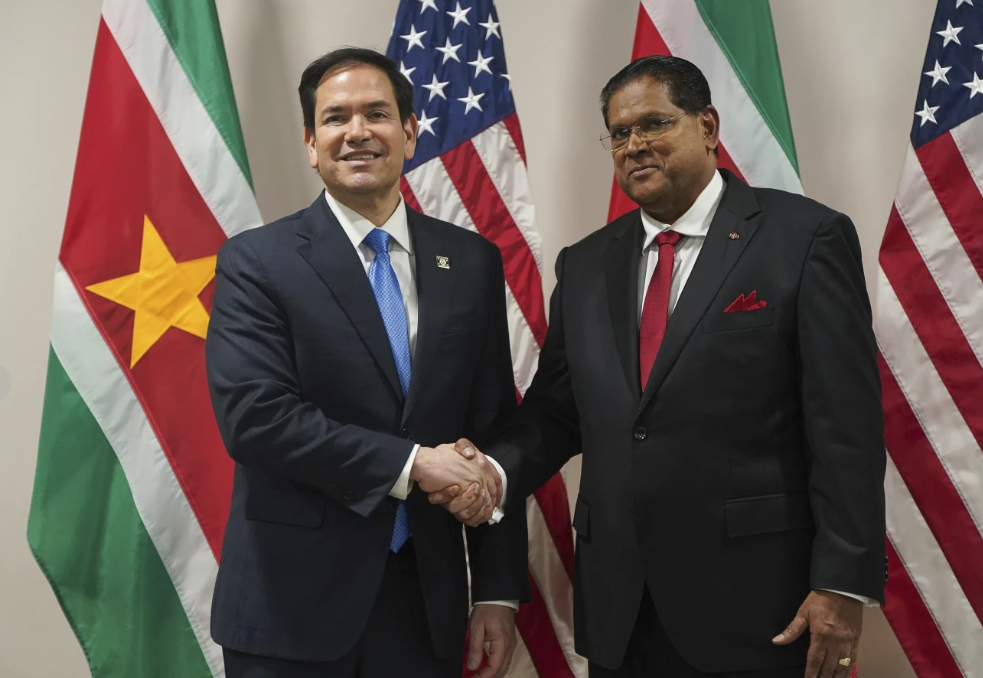China’s government expressed displeasure on Friday regarding the growing relationship between Guyana and the United States, which followed a visit by U.S. Secretary of State Marco Rubio to the South American nation.
This reaction came after Guyanese President Irfaan Ali announced that his country would give the U.S. preferential treatment over other nations. This decision was made after the U.S. committed to taking strong action if Venezuela attempts to annex Guyanese territory, as it has previously threatened.
In response, China’s Embassy in Guyana shared a statement on Facebook emphasizing that China prioritizes its friendship with Guyana. The statement also highlighted China’s significant contributions to Guyana’s economic and social transformation, asserting that “facts and figures speak louder than anything else.”
China pointed to its $1.4 billion in annual trade with Guyana and a number of significant infrastructure projects being carried out by Chinese companies, many of which are funded by Chinese loans. These projects include the new Demerara Harbor Bridge, the China-Guyana Joe Vieria Park, six regional hospitals, and the East Coast Demerara road project.
After meeting with Guyanese President Irfaan Ali on Thursday, U.S. Secretary of State Marco Rubio traveled to Suriname, where he made a comment about the poor quality of a road in Guyana built with China’s assistance. At a news conference, Rubio joked about the condition of the road, stating, “They don’t do a bad job, they do a terrible job,” adding that driving on the road almost caused concussions due to its poor state.
Rubio also criticized China for bringing in its own workers for projects abroad, suggesting that the country encourages nations to take out loans and then uses those debts to exert control.
However, Rubio acknowledged that U.S. companies have not been taking advantage of investment opportunities in the region. Surinamese President Chan Santokhi echoed this sentiment, saying, “Not all the countries are showing up. We are inviting investors,” and encouraged Rubio to push for greater private sector involvement from the United States.













